Fiction
Nonfiction
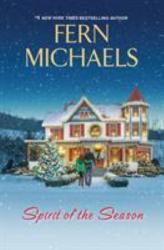
I haven't read Fern Michaels in several years, but since this is a "holiday" book, I thought I'd check it out. The main character lives in Denver. Colorado but the story takes place in South Carolina. Obviously, the editor didn't even bother to correct the cover illustration - a snowy Christmas scene. So many descriptions within the story were repeated. I couldn't finish the book. I wonder if the editor even reviewed the material.
Fern Michaels? Slam dunk. Not.
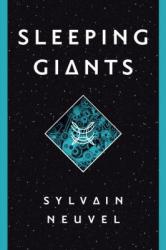
After my slight disappointment with Mecha Samurai Empire , I was pleased to find that a book that actually knows how to do "mecha" right already existed years before Mecha Samurai Empire was released. Taking a somewhat unique approach in its narrative structure, Sleeping Giants uses a series of interview transcripts to tell the story of discovering the parts of an ancient, giant robot and learning how to pilot this unique piece of equipment. There aren't any dialogue tags. There aren't any direct action sequences. There are just words describing the events as they happened. Somehow, it totally works.
I seriously couldn't get enough of this book and basically devoured every word. I was a little disappointed with the semi-cliffhanger ending, though. Just as everything was starting to finally come together, it just kind of ends. Sure, many of the large plot movements reached a momentary conclusion but now I really want to know what happens next. My only other qualm was the "exposition character" who was dropped into the narrative about half-way through to explain all the unexplainable bits of the story. It seemed like a cheap way to give information that wouldn't have been naturally revealed. What's perhaps the most interesting with the minimalist way the story is written in Sleeping Giants is how strong the characters come across. Even if it's only interview transcripts, the pauses, snark, and other personality traits are just as obvious as if I could see them talking across the table from me. Judging by the acknowledgments section of this book, I certainly can't wait for this to be made into a movie. I'm sure it will be just as exciting to see everything on the big screen as it was to read about it line-by-line.
A unique narrative method that had me ravenously reading, I give Sleeping Giants 4.5 stars out of 5.
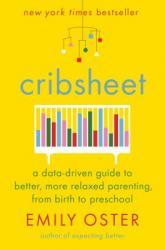
As a new parent and an engineer, I am skeptical when so much advice about raising a baby comes from hearsay or anecdotal evidence. So many controversial topics abound in the early years of a child’s life that I wanted to make sure I was basing my decisions off the scientific data instead of mere wives' tales. Fortunately, Cribsheet: A Data-Driven Guide to Better, More Relaxed Parenting, from Birth to Preschool exists. Unfortunately, it has merely proven to me that there haven’t been enough rigorous studies to show any causal relationships to make my parenting decisions any easier.
Similar in the tactics of Zero to Five (whose author was a science journalist), Cribsheet takes the experience of an economist and pits it against the studies that have been performed to determine which of them are legitimate enough to be trusted. In most cases, it seems that plenty of research into the benefits and detriments for children (and parents) merely comes down to broad Gaussian distributions. That is, there are no correlations between two drastically different approaches on the outcome of the child’s health or future behavior. This is undoubtedly a relief to know, if for no other reason than to give me free rein to parent as I see fit (with my wife's input, of course).
One mantra that Cribsheet seems to reiterate is that—even if data supports a beneficial outcome—if the parents’ mental health issues and/or anxiety increase because their lifestyle cannot support it is not worth the small percentage points of benefit to the child. Basically, the studies that do support something like breastfeeding show that these desired outcomes are in the short term and won’t harm the child if this particular parenting method isn’t chosen. While the data absolutely supports one or two items of interest, everything else is so loosely researched as to prove nothing in one way or another.
A great book about statistical rigor in childhood studies, I give Cribsheet 4.0 stars out of 5.
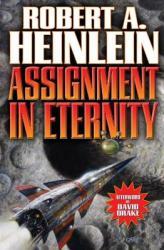
Back in college, my first introduction to Heinlein was Stranger in a Strange Land. I had to read this book for my “Science in Literature” course, and I found it moderately interesting. Since then, I’ve read other Heinlein books like Starship Troopers and The Moon is a Harsh Mistress, but I didn’t realize how dedicated Heinlein was to some of his “supernatural” themes until I read Assignment in Eternity. Sure, most authors will have some concept or idea that they like to revisit. Still, the fact that a majority of Assignment in Eternity ’s included short stories deal in some way with “superhumans” must mean something.
The whole concept of ESP and “evolved” humans isn’t interesting to me since I don’t think there’s much that can be done with the concept. While Stranger in a Strange Land covered most of the bases, Assignment in Eternity doesn’t really expand the ideas any further. If anything, Stranger in a Strange Land was the culmination of Heinlein’s obsession with this topic. I think, in the end, the whole idea of telepathy and other mind powers isn’t science fiction as much as the ideas explored by Ray Bradbury or Isaac Asimov.
Because Heinlein could fill a book with short stories mostly centering on this theme speaks volumes about the overall topics in his writing. If you’re into this kind of story, then Assignment in Eternity is an excellent addition to the classic that is Stranger in a Strange Land. If anything, Heinlein is consistent in his style, even if it makes short stories like this somewhat repetitive to the other stories and books he’s written. Like other short story collections, I would have liked to see some more variety in what was presented here, but I suppose beggars can’t be choosers.
More of the same Heinlein, just in smaller chunks, I give Assignment in Eternity 3.0 stars out of 5.
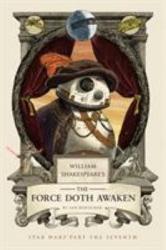
As I’ve been working my way through Ian Doescher’s Shakespearean adaptations of pop culture movies, I think I’ve hit the point where the novelty has worn off. For whatever reason, I didn’t feel like The Force Doth Awaken had the same charm as other entries in this quirky mash-up series. I have a sneaking suspicion that this may be due to one of two factors: 1. The newer movies have more “modern” dialogue that seemed as if it was directly plopped into the Shakespearean format, or 2. The original trilogy had more time to be ingrained in my psyche, and the translation to Shakespearean felt appropriate.
I don’t want to downplay the novelty of this adaptation, though. The voice acting is still superb, and the sound effects add a little something extra that immersed me as I listened to this audiobook. Plus, it’s not like these books are that lengthy anyway. If anything, I’m out a little over an hour of my time to listen to it (since I listen at 2x speed). I did appreciate that Chewie finally received the internal monologue that R2-D2 originally had since these un-translatable individuals still have something to add. I was, however, disappointed that BB-8 didn’t have the same treatment.
One of the other factors with this “translation” that I wasn’t too keen on was the meta aspect that kept winking at the reader and saying, “See? Do you get that reference?” I understand that everything exists in the Star Wars universe, but I think most people who will pick up this book will already know those references anyway and don’t need the coy allusions to other parts of the series. Of course, I’ll still end up listening to the rest of these when I can get them from my library, but The Force Doth Awaken felt like a low point (at least until I get into the prequels).
An almost too modern and meta Shakespearean adaptation, I give The Force Doth Awaken 3.5 stars out of 5.
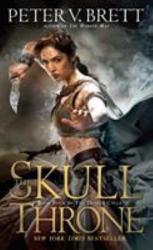
You’d think a book with (what I assume is) Renna Bales (nee Tanner) on the cover would follow her and the group of people she’s traveling with. You’d think a book titled “The Skull Throne” would spend a lot of time addressing the now-empty Skull Throne. Instead, we only got brief mentions of these two sub-plots. While I’m happy that the latter didn’t have many pages dedicated to it, I’m disappointed that the former was addressed for only a few scant sections at the beginning and end. Instead, the majority of this book spent time in places that didn’t advance the overall story at all.
Having read all the books (and the “3.5” novella) up until now, my concerns that arose during Messenger’s Legacy seem to have materialized. Sure, I do enjoy following the three main characters from The Warded Man , but there were certainly moments where I thought I was reading something from the Song of Ice and Fire series than The Demon Cycle series. This might be high praise for some, but I felt George R.R. Martin’s series was a little bloated and too concerned with relationship drama than actual dragons.
Additionally, I’m still having trouble caring about the Krasians. The fact that there are so many terms and titles for everyday things and people makes it confusing to follow at times. I understand its origins in Middle-eastern culture, but at some point, it goes too far (xkcd had a comic about the number of made-up words in a fantasy book reducing its quality). The culture clash between the Krasians and everyone else has persisted for three books now, and it’s quite tiring to keep highlighting how different and backward their thinking it sometimes. I can only hope we get to see some demon battles in The Core since this book left me unsatisfied.
A weak link that could have spent more time on more exciting subplots, I give The Skull Throne 3.0 stars out of 5.
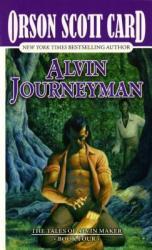
With this fourth book in the Alvin Maker series, I’m starting to see why a
lot of writers like to stick to trilogies. If anything, I think most readers
can probably skip this volume and move on to the next one because there
wasn’t anything too new or interesting that happened in it. If anything, it
was a re-hash of events in the previous book with a few new characters added
to it. I will concede that Alvin Journeyman did finally develop a fitting
antagonist for Alvin. Still, so few pages were dedicated to this sub-plot
that I’m wondering if it should have just been pulled out and made into its
own novella that would span the gap between book three and book five.
Once again, the strength of the series as a whole carries through here, and
some loose character arcs are tied up before moving on to more important
things. However, spending the majority of the book hashing over what astute
readers (or even readers who were moderately paying attention in the last few
books) already knew as truth just to confirm to the rest of the characters
around Alvin that he wasn’t lying seemed like a waste of words.
If anything, using the delay in Alvin’s journey to develop Calvin’s
“making” abilities did provide a bit of contrast between the two and will
likely pay off when the forces of good and evil clash in future volumes. I
still appreciate the way Orson Scott Card integrates actual history with a
fantasy explanation, though. Despite the missed step here, I’ll continue
with the series to see how it resolves. At the very least, volumes like this
show me why it’s not as notable as the Ender Saga, which was a solid four
book set (that’s really just three books with the third split into two
parts).
A weak link in the Alvin Maker series, I give Alvin Journeyman 3.0 stars out
of 5.
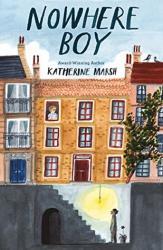
Fantastic! Ahmed is a 14 year old Syrian refugee that has been orphaned and left with no money and no place to go. He ends up in Brussels and hides in the wine cellar of a house. Max, whose family lives in the house, discovers him and they strike up a friendship. What follows is a story of loyalty, determination, and desperation. The ending almost made me cry. The book brings up questions about whether or not countries should accept refugees and how to determine who is good and who is a terrorist. I definitely recommend it to everyone, as the plight of middle eastern refugees should be known to all.
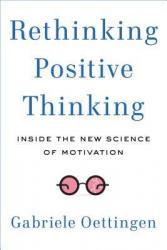
In her book, Ms Oettingen teaches readers how to use the science of positive thinking to their advantage. After years of research, she has found that mere "positive thought" does not produce optimal results for people's lives. Instead, a specifically targeted approach to positive thought and positive action is best. This is what she teaches readers. I would recommend this book to people seeking to improve their lives through targeted approaches of thought and action. Readers 16 and up are appropriate.
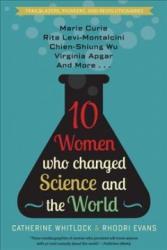
In her book, "10 Women Who Changed Science and the World", Catherine Whitlock authors the biography of ten women who were deeply influential in science. For each woman, she writes a biography of their life and what significant contribution they made to their field. This book is well-written and informative, and neither too long nor too short for each woman's biography. I would recommend this book for readers of ages 13 and up. This book should interest those interested in women's contributions to science.
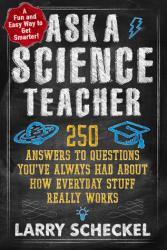
In his book "Ask a Science Teacher", Larry Scheckel lists 250 science questions and answers them all in detail for readers. Each series of questions is divided under sections. For example, there is a section about Sound and Music and a section about Chemistry. He spans a broad range of scientific topics, from biology in the question "How many cells are in the body?" to history of science in question "Did Issac Newton develop calculus?" Mr. Scheckel answers the questions thoroughly with interesting detail. He engages readers. I would recommend this book to anyone with science interests and questions. This book is appropriate for ages high school and up.
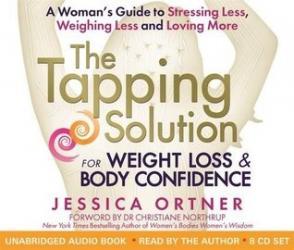
In her book “The Tapping Solution For Weight Loss and Body Confidence”, Jessica Ortner guides readers through a step-by-step process for not only losing weight but also for increasing self-compassion and thus increasing self-confidence and self-esteem. Tapping, also known as EFT (emotional freedom technique), is a method of lowering cortisol levels in the body. By tapping on specific meridian acupressure points on the face, neck, and underarms while describing the issue or stressor, it has been scientifically proven that the brain re-wires and cortisol reduces. In her book, Ms Ortner not only teaches readers how to tap in order to aid weight loss, since low cortisol levels have been linked with greater weight-loss success. She also helps readers to learn how to be more self-compassionate in their weight-loss journey, thus decreasing stress and increasing self-confidence.
I enjoyed this book for its positive message to women to be confident in who they are at this and every moment of life, even within the challenges we face. I would recommend this book to readers from ages 16 and up, especially young women or women looking to increase their self-compassion.
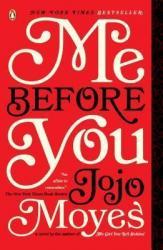
his novel brought every single emotion to mind while reading. Whether it was joy, love, anger or sadness; this novel made me feel many things. This romantic novel brings you through the road of love and romance as well as heartbreak and tragedy. Louisa Clark is a young woman leading an extremely mundane life, that is until she finds a job as the caretaker for the wheelchair bound Will Traynor. Through the adventure of love and romance, Louisa learns from Will that life is too short to waste and that she deserves more from life. This novel is absolutely riveting but also teaches a lesson on the importance of living your life to the fullest.
Reviewer Grade: 12
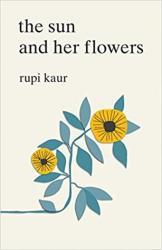
The Sun and Her Flowers is a book filled with relatable poetry. The poems are mainly focused towards a female audience, and bring to light the realities and harshness of life. The book has three parts that are based on the flowers, blooming, withering, and rebirth. The poems follow those specific categories with happy, sad, and hopeful poems centered around it. The poems are also centered around heartbreak and love, some of the poems share lovely scenes of first dates; where others are tragically centered around heartbreak. Poems of heartbreak talk of crushes not sharing love for the other, and relationships that took a turn. The poems are easily relatable to teenagers and the daily struggle of their lives. I gave this book a high rating because it not only made me laugh and smile but it also moved me to tears several times throughout, the poetry is touching on an outstanding level.
Reviewer Grade: 12
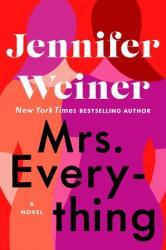
Surprisingly good. I was expecting more of a lighthearted chick lit experience, but it was a compelling read that delved into the lives to two sisters over a period of time. I'm not sure what the title has to do with the story but still a very powerful story.
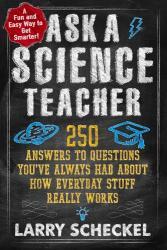
In his book "Ask a Science Teacher", Larry Scheckel lists 250 science questions and answers them all in detail for readers. Each series of questions is divided under sections. For example, there is a section about Sound and Music and a section about Chemistry. He spans a broad range of scientific topics, from biology in the question "How many cells are in the body?" to history of science in question "Did Issac Newton develop calculus?" Mr. Scheckel answers the questions thoroughly with interesting detail. He engages readers.
I would recommend this book to anyone with science interests and questions. This book is appropriate for ages high school and up.
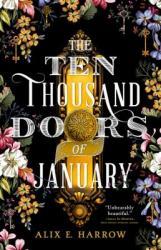
This beautiful work of art, is a love letter to stories and bibliophile’s everywhere. I loved Harrow’s intoxicating magical debut so much that I blew through it in 4 days! I read it back in March but it still sticks with me to this day! But I have to admit, I have been a hard time finding words to describe this magical beautiful experience of a book because it grabbed my heart so completely and did so much to me, that to try to express it in words and to remember all the intricate details has been difficult. But I am happy to report I am currently doing a re reading and so far it is just as magical, heartbreakingly tender and beautiful as the first time. I am so excited that it has finally come out and more people get to experience this epic journey into unknown worlds. This should be on everyone’s reading lists!
Meet January Scaller, a brown girl, an in between sort of thing some call her, growing up in the 1900’s a time rife with social change, and colonialism. A difficult time where the world is in transition and nothing is at it seems. January is the ward of a wealthy white benefactor, Mr. Locke, who spends his waking moments hunting for the worlds artifacts and then selling them to the highest bidder. Or more truthfully, employing people like January’s father to hunt down these treasures, so he can sell them. As a result, his sprawling estate resembles a museum decorated with treasures and all sort of odd things from around the world. Being taught to always be the good girl, she is tollerated in Mr Locke’s society but still she feels like a artifact herself.
With her father gone for months at a time and Mr. Locke attending to meetings, January grows up alone, content with wandering the lonely grounds and halls to be among it’s treasures and discover its secrets. One day when she was 7, playing amidst the wide open fields of the estate, she discovered a door, a blue ragedy door that hadn’t looked like it had been used in ages, and she wished for it to lead to elsewhere, using a old diary she had found. Next thing she new, she was stepping from the familiar into a new world unknown. When she was was older, in the same place she found the diary, she discovered a mysterious book that spoke of secret doors, other worlds, and adventure. As the pages keep turning January discovers connections and truths to her own story, that she never would have imagined and is led into a adventure of a lifetime.
Full of beautiful imagery and entrancing atmospheric prose, this story exhibits the best things I love about books and fantasy in general. Prose that flower off the page and into the reader’s imagination, a coming of age tale, a magic system based in words and stories, other lands, a wild, beautiful, strong heroine who has trouble fitting in and conforming to standards, dastardly villains, sweet friendships, and a heart of love and family at it’s center.
Stories have a way of communicating deeper truths that can’t be understood and communicated in any other way. And their is so much in this book! A imaginative tender hearted lonely adventuresome girl full of all the desires that young girls have, the yearning to be loved both romantically and by a father, and the desire to be part of a grand adventure in unknown new exciting places. This story communicates hope for better things and the understanding that their is something more. It communicates love and the need for family and belonging, it communicates the importance of discovering identity and sticking to your truths no matter what. And it communicates so many other truths that are at once both universal but at the same time, personal as stories speak to each of us differently and discovering what they say, is part of the adventure.
And everyone should go on this adventure! Everyone should read this intricate, tender hearted, complex, magical, tale that will sweep your heart between it’s pages and not let it go, even after the last page is turned.
Thank you to Orbit publisher for my ARC of this wonderful tale for review!
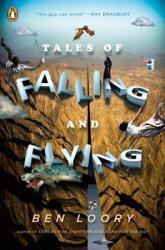
This book is a compilation of short stories, which are filled with humorous tales and great short stories. I personally really liked this book because of how every story was a perfect duration. I often find it hard to commit to a book for more than a week, with this book, I was constantly entertained by the fun theme of all the stories. If you're looking for a great compilation of bed time stories, or just don't have the time to commit to a long chapter book, this book is perfect for you. If you are looking for one great story to start the adventure, my favorite was The Squid Who Fell in Love With The Sun.
Reviewer Grade: 8
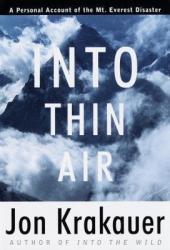
Into Thin Air is a narrative story of the author and climber, Jon Krakauer.
He establishes that ever since he was a kid, climbing Mt. Everest was his dream. He later accomplishes his ambition down the line, but with more consequences than anything rewarding.
Into Thin Air uses a consistent tone of language to identify whether the situation represents relief or tension. This gathers more intensity for those who are interested in thrillers and adventurous stories. The narrative offers a variety of twists and turns throughout the plot in order to continue the use of curiosity and unpredictability of the end. The story is very interesting, and builds upon every single detail, from the start until the end of the book.
Reviewer Grade: 11

In her book 'Thank and Grow Rich', Pam Grout introduces readers to the benefits of practicing gratitude. While practicing gratitude does not, as Mrs. Grout states, make readers physically rich, the scientific benefits are vast. Outlining these benefits of increased health, greater happiness, and thus a more fulfilling life, Mrs. Grout encourages readers to join in the practice of gratitude.
This is a lovely book celebrating the practice of giving thanks. Filled with experiments and applications of gratitude, this book is very user-friendly. I would recommend this book to readers looking to improve their positive-thinking and gratitude habits. Ages 14 and up are appropriate for reading.


